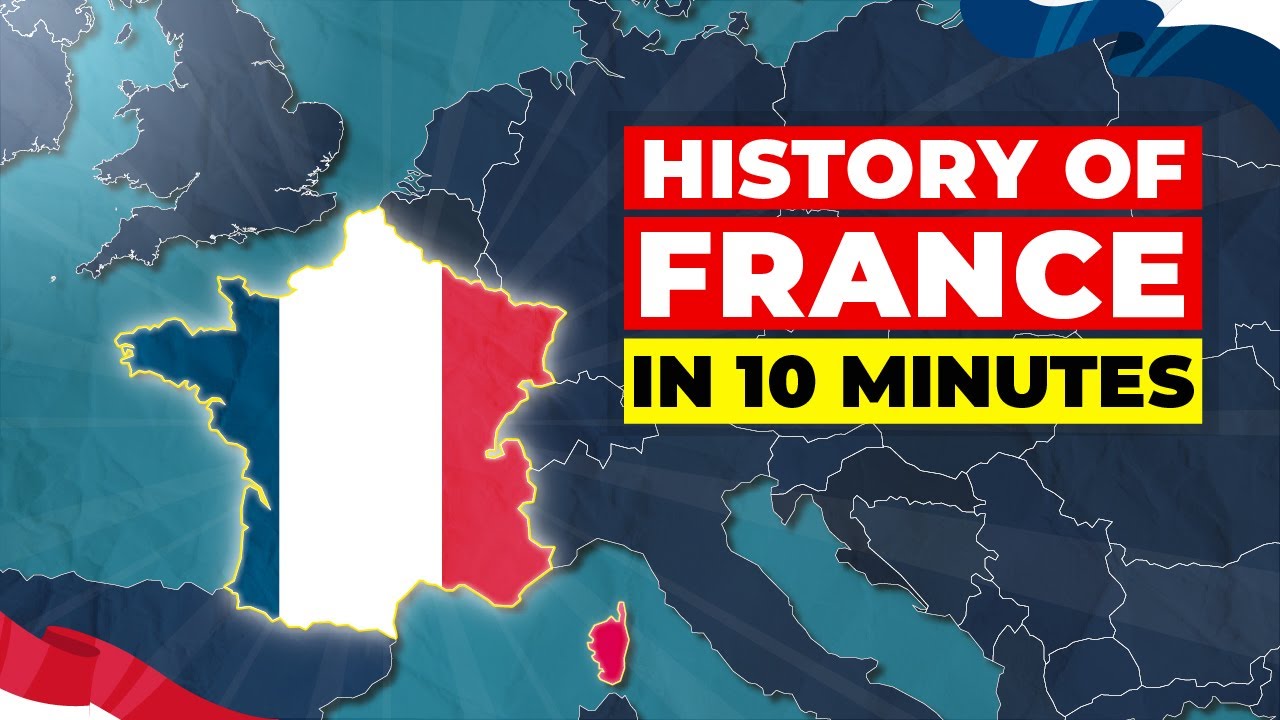The Franks: the Birth of Modern Europe
Summary
TLDRThe video script chronicles the rise of the Frankish Empire, from the early days of the Franks' unification under Clovis to the establishment of the Carolingian Dynasty. Key figures like Charles Martell and Charlemagne are highlighted for their military achievements and political reforms. Charlemagne's reign is marked by his conquests, including battles against the Saxons and Lombards, and his coronation as Emperor of Rome. The script also touches on the challenges faced by his successors, including internal rebellions and territorial divisions, leading to the eventual fragmentation of the empire.
Takeaways
- 😀 The Franks were a powerful group in post-Roman Europe, originating from an alliance of smaller Germanic tribes along the Rhine and coastal areas.
- 😀 Clovis, the first king of the Franks, united the Salian and Ripuarian Franks in 485 and significantly expanded their territory through military conquests.
- 😀 Clovis' conversion to Catholic Christianity in 496 strengthened his power and formed an alliance with the Church, solidifying his rule over the Franks.
- 😀 The Merovingian dynasty after Clovis was marked by weak leadership, and power shifted to the Mayors of the Palace, who controlled the real political authority.
- 😀 Charles Martel, known as 'The Hammer,' defeated the Arabs at the Battle of Tours in 732, halting their expansion into Western Europe and establishing the foundation for European cavalry.
- 😀 Charlemagne, son of Pepin the Short, expanded the Frankish Empire to its greatest extent and was crowned Emperor of the Romans in 800 by Pope Leo III.
- 😀 Charlemagne's military campaigns included victories over the Lombards, Saxons, and Arabs, while also instituting significant political and administrative reforms.
- 😀 The Massacre of Verden in 782, where Charlemagne executed 4,500 Saxons, is one of the darker episodes of his reign, showcasing his ruthless approach to rebellion.
- 😀 Following Charlemagne's death in 814, his son Louis the Pious faced numerous rebellions and internal strife, leading to the eventual division of the Frankish Empire.
- 😀 The Treaty of Verdun in 843 divided the Frankish Empire into three parts, setting the stage for the formation of future European states: France, Germany, and Lotharingia.
Q & A
Who were the Franks and what is the origin of their name?
-The Franks were a powerful Germanic tribe that emerged after the great migration of peoples. The name 'Frank' comes from the Proto-Germanic word 'fra,' meaning 'free.'
How did Clovis contribute to the expansion of the Frankish Kingdom?
-Clovis, the King of the Franks, united several tribes into one powerful alliance and expanded Frankish territory through a series of military campaigns, including the defeat of the Alemanni, Visigoths, and Burgundians.
What was Clovis' most significant achievement in terms of religion?
-Clovis' most significant achievement was his acceptance of Christianity under the Catholic rite, which helped him form an alliance with the Church and consolidate power over the Franks.
How did the position of Mayor of the Palace come to dominate Frankish politics?
-The Mayor of the Palace gained significant power as he controlled the royal palace, had access to the treasury, and issued royal decrees. This allowed mayors to effectively rule in place of the kings, especially during the reigns of the 'lazy kings' of the Merovingian dynasty.
What was Charles Martell's role in the defense of Europe from the Arabs?
-Charles Martell, the Mayor of the Palace, famously defeated the Arab forces at the Battle of Tours in 732. This victory is credited with halting the Islamic expansion into Western Europe.
How did Charles Martell shape the future of European warfare?
-Charles Martell's use of heavy cavalry, which he formed by distributing land to vassals in exchange for military service, established the foundation of European cavalry, a dominant force on the battlefield for centuries.
What led to Pepin the Short becoming the King of the Franks?
-Pepin the Short, previously the Mayor of the Palace, sought the throne. In 751, with the support of the Pope, he deposed the last Merovingian king and was crowned King of the Franks, marking the rise of the Carolingian dynasty.
How did Charlemagne expand his empire?
-Charlemagne expanded his empire through a series of military campaigns, including the conquest of the Lombards, Saxons, and other territories. His conquests greatly expanded the Frankish kingdom into what became the Carolingian Empire.
What was the significance of Charlemagne's coronation as Emperor?
-In 800, Charlemagne was crowned Emperor of the Romans by Pope Leo III. This event marked the revival of the Roman Empire in the West and solidified Charlemagne's rule as a central figure in European history.
How did the division of the Frankish Empire affect Europe?
-After Charlemagne's death, his empire was divided among his sons. This division, formalized by the Treaty of Verdun in 843, led to the creation of the precursor states of modern European nations: France, Germany, and Italy.
Outlines

This section is available to paid users only. Please upgrade to access this part.
Upgrade NowMindmap

This section is available to paid users only. Please upgrade to access this part.
Upgrade NowKeywords

This section is available to paid users only. Please upgrade to access this part.
Upgrade NowHighlights

This section is available to paid users only. Please upgrade to access this part.
Upgrade NowTranscripts

This section is available to paid users only. Please upgrade to access this part.
Upgrade NowBrowse More Related Video

Carlo Magno e i Franchi

The Entire History of France in 23 Minutes

Full History of France: From Ancient Times to Today

How did the Holy Roman Empire Form? | Animated History

Geographic History of France: How France Acquired The Land It Owns Today

İngiltere, Merovenjler, Karolenjler, Charles Martel ve Kısa Pepin Dönemi (güncellendi)
5.0 / 5 (0 votes)